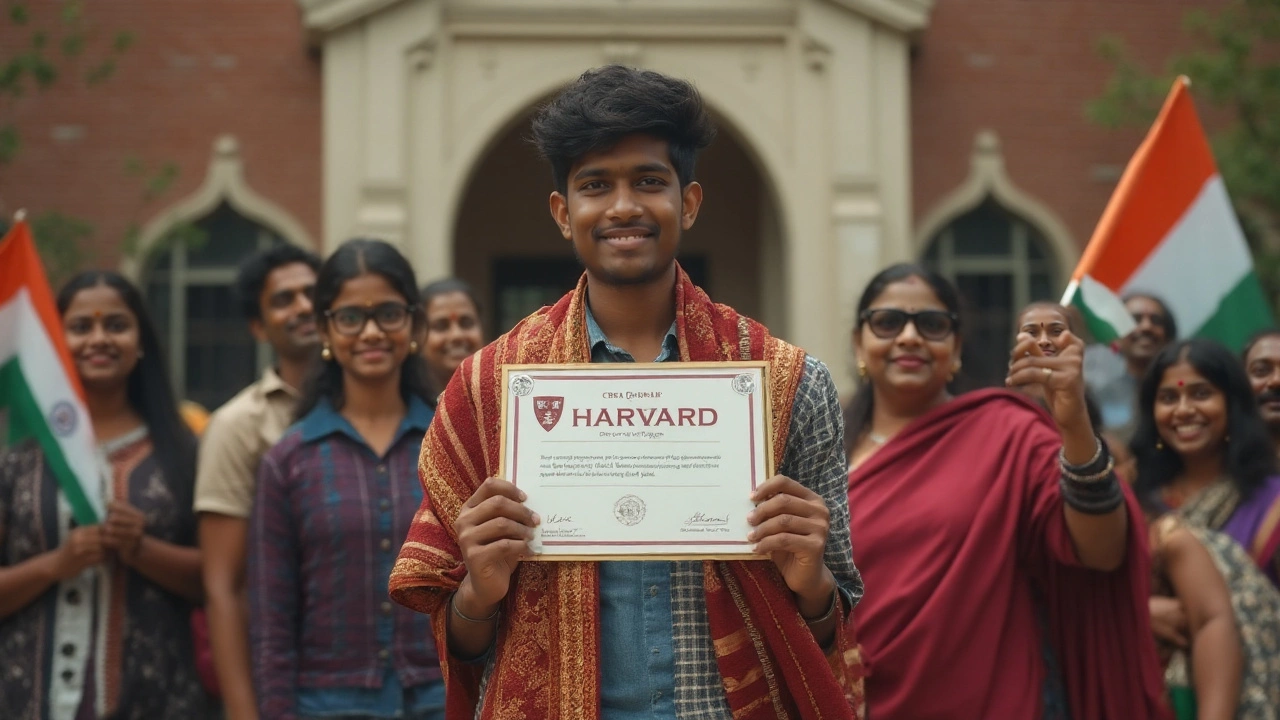So you’re staring at the Harvard website, CBSE mark sheet in hand, thinking: do I really stand a chance? Surprise—Indian students with a CBSE background absolutely make it to Harvard. Whether you’ve dreamt of walking through Harvard Yard or just want to leave the door open, knowing the real obstacles and hacks can save you a ton of stress and confusion. It’s not about where you studied, but how you tell your story and how you prove you’re Harvard material. Here’s the truth most people around you probably won’t say out loud: you don’t need IB, A-levels, or some American fancy certificate to catch Harvard’s eye. Let me break it all down—step-by-step, fact-by-fact, so you never have to wonder.
Does Harvard Really Accept the CBSE Curriculum?
First things first: Harvard doesn’t discriminate between CBSE, ICSE, ISC, State Board, or international curriculums. They see thousands of applications from CBSE students each year, and yes, some make it in. The Harvard admissions page itself doesn’t even ask for a particular board, just that you finish your secondary education. CBSE is well recognized—actually, it’s often more rigorous in subjects than certain high school diplomas from the US. Some of Harvard’s Indian students have been school toppers in Delhi, Chennai, and Mumbai—with CBSE backgrounds. Fun fact: the incoming Harvard class of 2026 had students from more than 110 countries; India consistently sends a chunk of them, many from CBSE.
So, why all the confusion? CBSE isn’t always familiar to American admissions teams, but Harvard has seen it for decades. They know what a 95% in CBSE means, and how it’s not just handed out. They often get credentials verified and use community context to understand your achievements. Big tip—when you fill out application forms and write essays, don’t shy away from mentioning any unique aspects of your board or heavy subject load. Show them what makes CBSE challenging; you can even attach an official curriculum summary if your school offers it, so admissions folks know you weren’t coasting.
How to Make Your CBSE Application Stand Out at Harvard
This is where it gets interesting. Harvard isn’t looking for robots or test-taking machines. Just being a topper or getting ninety-somethings isn’t enough (though it definitely doesn’t hurt). You need to show them who you are outside of CBSE—clubs, sports, projects, volunteering, research, anything you’re passionate about. Lots of CBSE toppers don’t get in, but students with strong stories and clear impact do.
Harvard wants three things: super academic performance (and yes, CBSE marks hold their own, if backed by strong subjects and rigorous scores), actual involvement in extracurriculars, and a story that gives insight into your character. Here’s a simple trick: list your major school projects or leadership roles, not just the marks. Did you lead a science fair team or start a peer tutoring club? They love original contributions. And for essays—don’t try to sound like an American. Authenticity stands out way more. Share why your CBSE experience shaped you, or how you handled pressure around board exams.
Another tip: if your school is “English-medium” (which most CBSE schools are), state that clearly. Harvard needs to know you’ll do fine with classes in English. Attach your school’s English proficiency attestation if you can. If you took AP or SAT Subject Tests alongside CBSE, mention those too—they can strengthen your case, but they aren’t mandatory.

What Documents Will You Need If You’re from CBSE?
This trips up a lot of people. Here’s what you need to get your file right. First, your transcripts and mark sheets from classes IX through XII. Harvard wants a “school report” too, but since CBSE schools don’t always offer a formal counselor, you can ask your school principal or head of academics to handle it. The board exam scores matter, but so does your performance before XII, so keep those year-wise marks handy.
You’ll also need recommendation letters from teachers. These can be in any subject, but Harvard loves seeing at least one STEM and one humanities rec, if possible. Choose teachers who know you, not just famous ones whose recs sound generic. If your school did something special—like offered an extracurricular program, or you contributed to school events—ask the recommender to mention that. You’re building a profile, not just ticking boxes.
Standardized tests like the SAT or ACT are optional as of recent cycles, but submitting strong scores certainly doesn’t hurt a CBSE candidate. You’ll also take the TOEFL or IELTS unless your entire schooling was in English (Harvard sometimes waives this requirement for Indian applicants, but don’t gamble—check each year before applying).
Challenges Faced by CBSE Students (and How to Beat Them)
CBSE isn’t always designed for Harvard-level essay writing or open-ended research projects, and that’s a real challenge. You probably did well in rote-based exams, not so much in discussing ideas. Don’t worry—lots of successful Indian applicants struggled at first. What sets them apart is how they worked on these weak spots. Start reading widely and writing practice essays. Harvard’s Common App and supplemental essays ask you to reflect, explore ideas, and tell personal stories. Find a mentor or teacher who can review your writing—and don’t copy past students; admission teams spot recycled lines from miles away.
Another barrier: CBSE grading can seem brutal compared to US schools, where an 80% can be considered excellent. A 95% in CBSE Math is hardcore; in America, you might get an A+ for less. This is why context and school profile matter. When in doubt, have a teacher include a letter explaining how marks are awarded and what ranking you hold in your cohort. If you were a school topper in a competitive metro, say that directly—it helps admissions understand the level of your achievement.
Finally, Harvard costs a bomb. Don’t let finances freak you out. If you’re from a regular middle-class Indian family, apply for financial aid. Harvard offers need-based aid even for international students, including CBSE grads. Plenty of Harvard Indians are there on partial or full scholarships. Get your tax documents ready and read up on the CSS Profile, as you’ll need to submit it for aid consideration.

Tips, Myths, and Takeaways for CBSE Students Targeting Harvard
Don’t get stuck listening to WhatsApp rumors or Facebook advice about needing “extra” qualifications. You do not have to sit for IB just for Harvard. CBSE is fine—what matters is how you use your time and build a unique application. Harvard ignores quotas based on nationality or curriculum. They’re scouting for difference-makers, not just number crunchers. If you think you’re at a small-town or lesser-known CBSE school, don’t worry. Harvard likes finding stories from places they haven’t seen before. If you’ve used limited resources to do something special, highlight that in your application.
On a practical note, start your application early—August is when the Common App opens and deadlines sneak up fast. Double-check each required document (marksheets, translations, scanned copies). Use your essays to tell your story, not what you think Harvard wants to hear. Reach out to current Indian students or alumni if you can; many love to help and even share sample essays or interview tips.
One last thing—a ton of new Harvard admits from India these days have parents who didn’t go to Ivy League colleges. You don’t need a “legacy” or any family backing. Prove your grit, own your CBSE story, and use your experiences as your edge. The moment you show Harvard why your journey stands out beyond the numbers, you flip your CBSE “disadvantage” into a strength. Submit your application with confidence. You have nothing to lose and everything to win—and that journey starts with a single bold step. So if your dream is to see yourself at Harvard, go for it. The biggest hurdle isn’t your CBSE report card; it’s believing you belong.

